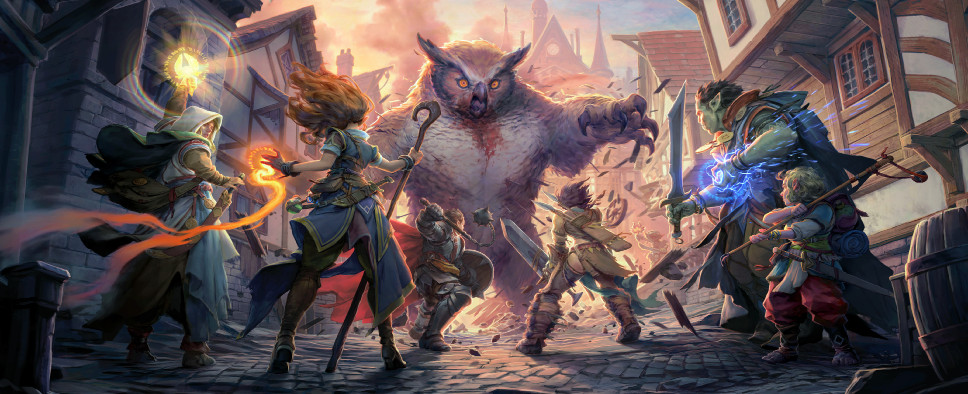Pathfinder: Kingmaker RPG Codex Review
-
Category: News ArchiveHits: 1885

Now that Owlcat Games updated Pathfinder: Kingmaker with the ultimate Definitive Edition, and even an official turn-based mode, there’s no reason why you shouldn’t play this massive CRPG that best captures the spirit of the old Infinity Engine titles. But, if you’d still like to know more about this game and its current state, you might want to check out this detailed RPG Codex review.
A few sample paragraphs:
Kingmaker uses the Pathfinder ruleset, which builds off of Dungeons & Dragons 3.5. I found it mostly familiar, though it does add a lot of different active abilities that I found overwhelming to have to read through, so I largely ignored them and made it through well enough. Classes new to D&D-derived crpgs include bomb-throwing alchemists, fighter/wizard-hybrid magi, fighter/cleric-hybrid inquisitors, ranger/rogue-hybrid slayers, and elemental-blast slinging kineticists (available as worthwhile downloadable content). For powergamers, it's a dream; there are a lot of different ways to build an incredibly effective character.
The difficulty settings have an impressive amount of customization, allowing players of all skill levels to find the ones that appeal to them. I had to go with custom settings myself since none of the preset options worked for me as-is; I made it as close as possible to the core rules with the exception of a few convenience tweaks to suit my personal preferences.
All the skills receive plenty of use, and whenever you're in a dialogue screen or have every character highlighted, it always uses the character with the best score. Somewhat unique to this game is that passing a knowledge or a lore check on an enemy allows you to view some of or even all of its attributes and abilities; a fair compromise between being completely blind and having complete metaknowledge immediately. I was aggravated by the randomization involved with this and all the other skills at first, though I learned to live with it. As an example, when you fail at picking a lock, you can't ever try again with that particular character until the next level-up. Of course, nothing's stopping you from reloading until it works, but I couldn't be bothered for the most part and accepted my losses unless I only lost because of a pitifully low-digit roll. Pathfinder does support taking 10 and taking 20 on checks outside of combat, so I'm puzzled why they didn't go with that.
Moving on, the inventory system uses individual weight limits and a party stash that's limited by the strength scores of everyone in the party. Going over certain thresholds decreases the amount of time your characters have before they become fatigued, and it also slows down movement on the world map (as well as movement in general if you wish to opt into that). I found it a fair compromise between extreme inventory micromanagement and having an unlimited inventory that encourages vacuuming up everything.
[...]
Conclusion
Flawed as it may be, Kingmaker is high enough in quality when it comes to core gameplay and content. My congratulations to Owlcat for making a rough diamond on their first try after many months of patches. While it has too many issues to be an indisputable classic, this is the game Neverwinter Nights 2 should have been, and the one Pillars of Eternity failed to be (even though PoE has better combat pacing even with all its encounters). It's too bad it goes overboard on combat to such a degree that it's the equivalent of two RPGs in one; I never want to play it again even though I'd normally want to try a different build and make different choices. Nevertheless, it's a must-play for any real-time-with-pause party-based fantasy RPG fan.

